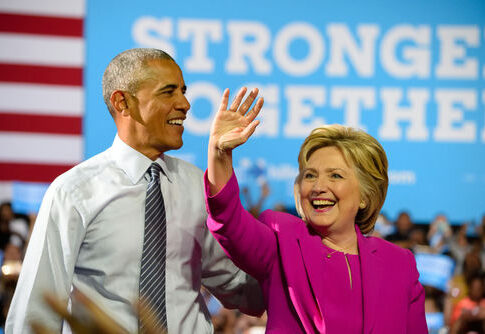The Obama administration once again finds itself under scrutiny as newly declassified documents suggest it “manufactured and politicized intelligence” to create the Russian collusion narrative, sparking a fierce debate over the integrity of our intelligence community.
Obama Administration Accused of Manufacturing Intelligence
The political landscape has been rocked by revelations suggesting that the Obama administration played a significant role in crafting the narrative of Russian interference in the 2016 election. DNI Tulsi Gabbard released documents on July 19, 2025, alleging that senior Obama-era officials manipulated intelligence to support claims of collusion between the Trump campaign and Russia. These allegations have reignited fierce debates over the legitimacy and motivations behind the original investigation that dogged Trump’s presidency.
The declassified documents point to several high-profile figures, including former CIA Director John Brennan and former DNI James Clapper. The charges claim they were instrumental in creating and promoting the collusion narrative despite intelligence assessments to the contrary. Now, criminal investigations have been opened to examine whether these officials made false statements to Congress, among other potential wrongdoings.
Obama’s Office Pushes Back
In a rare public statement, Obama’s office has categorically rejected the accusations, labeling them as “outrageous.” The former president and his team have dismissed the claims as politically motivated attempts to rewrite history. Despite these denials, the lack of detailed public responses from other accused officials and the Department of Justice has left a cloud of uncertainty over the proceedings.
"President Obama, former Director of the CIA John Brennan, and others fabricated the Russia Hoax, suppressed intelligence showing Putin was preparing for a Clinton victory, manufactured findings from shoddy sources, disobeyed IC standards, and knowingly lied to the American… https://t.co/jBwDCOI5cJ
— Rasmussen Reports (@Rasmussen_Poll) July 23, 2025
The Obama administration has long been under fire from conservatives who argue that the original Russia probe was a politically charged exercise designed to undermine Trump’s presidency. These new allegations have added fuel to that fire, prompting calls for accountability and transparency from all involved parties.
Renewed Partisan Battles
The controversy over the origins of the Russia investigation has once again highlighted the deep political divides in the United States. For many Trump supporters, the latest developments validate their long-standing belief that the Russia probe was a politically motivated witch hunt. On the other side, critics argue that the broader context of confirmed Russian interference efforts must not be overshadowed by the new allegations.
Trump on Barack Obama: Obama himself manufactured the Russia, Russia, Russia HOAX. Crooked Hillary Clinton, Sleepy Joe, and numerous others participated in this, THE CRIME OF THE CENTURY. Irrefutable EVIDENCE. A major threat to our Country! Arrest Obama. No one is above the law! pic.twitter.com/tQkrBLsyf8
— AJ Huber (@Huberton) July 22, 2025
The intensity of the debate is further exacerbated by the media’s coverage, with outlets taking sides in the ongoing battle. Conservative media has been quick to highlight the findings as evidence of a deep-state conspiracy, while liberal outlets caution against accepting the allegations without full context and verification. This media-driven polarization only deepens the mistrust in government institutions that has become all too common in recent years.
Implications for Public Trust and Political Climate
The potential implications of these allegations are significant. In the short term, the scandal is likely to heighten political tensions and further polarize public opinion. If the investigations lead to legal consequences for former officials, it could set a precedent for future political and intelligence conduct. In the long term, the controversy risks eroding public trust in intelligence and law enforcement agencies, with possible ramifications for how intelligence is handled in politically sensitive matters.
For the general public, the ongoing saga is yet another chapter in the tumultuous story of U.S. political discourse. As partisan divides deepen, the challenge of separating fact from fiction becomes increasingly daunting, leaving many citizens disillusioned with the political process. The road ahead is fraught with uncertainty, and only time will tell the full impact of these explosive allegations.
Sources:
Director of National Intelligence


